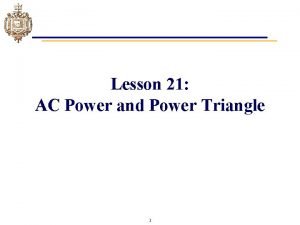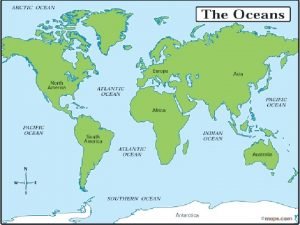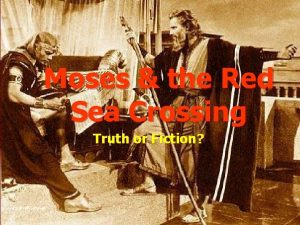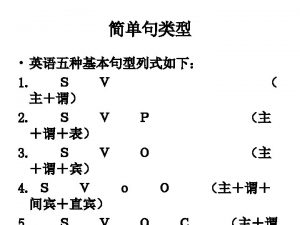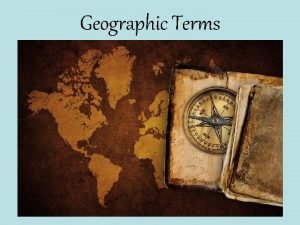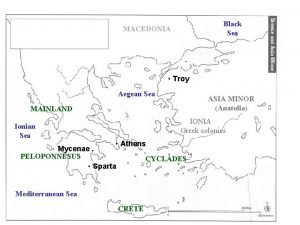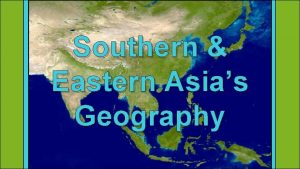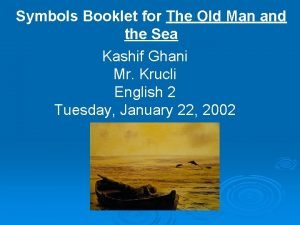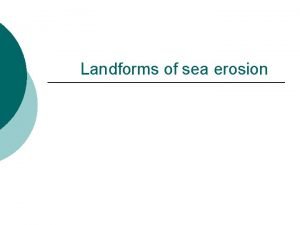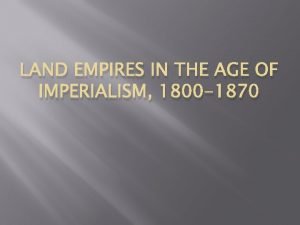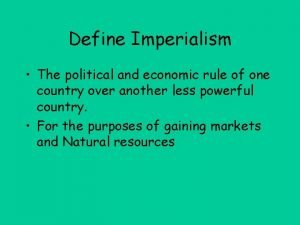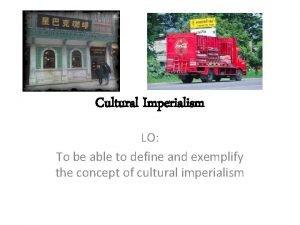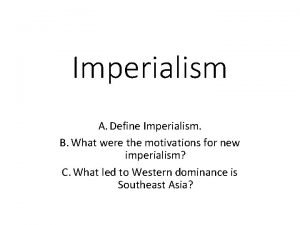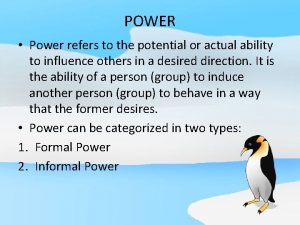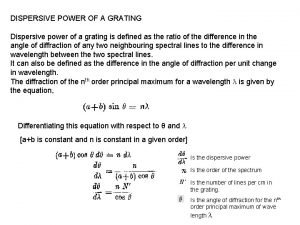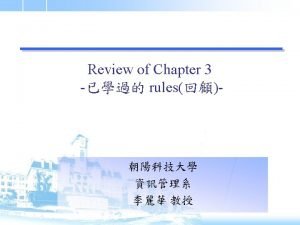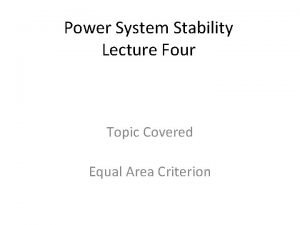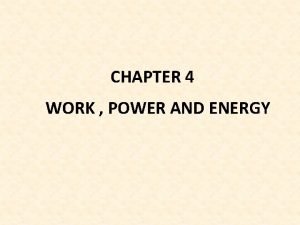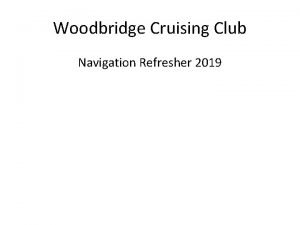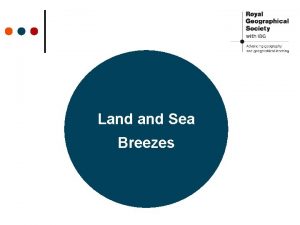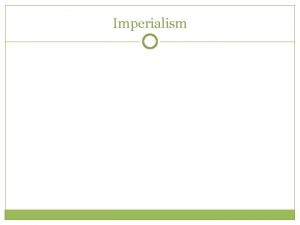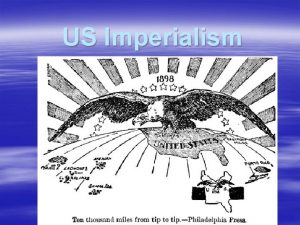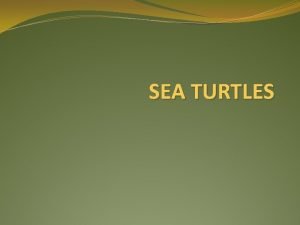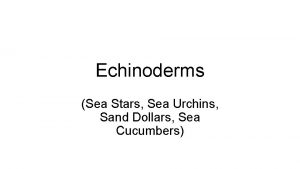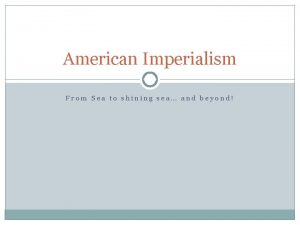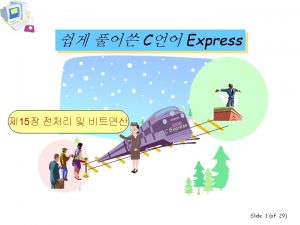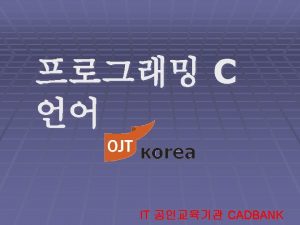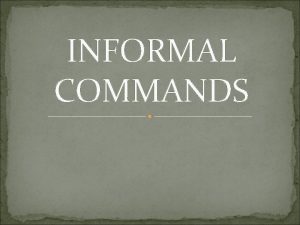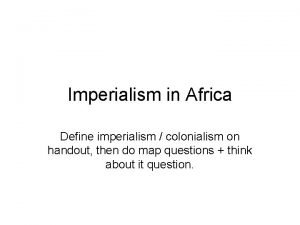IMPERIALISM Define Imperialism Imperialism Land power vs sea






































- Slides: 38

IMPERIALISM Define Imperialism

Imperialism Land power vs. sea powers 1492 � New type of Empire building � Nationalism + Industrialization = Imperialism � Nationalism – motivated overseas expansion � Industrialization – increased need for raw materials and markets; enabled better transportation/communication � Napoleon Julius Caesar William Mc. Kinley

Imperialism – Old vs. New OLD � God, Gold, Glory (colonies/ports) Focus on the Americas � Portugal, Spain, England, France � NEW Political, Economic, Social motivations (colonial, political, economic and socialcultural imperialism) � Focus on Africa and Asia � ADDING - Germany, Italy, Belgium, US and Japan � Fueled by Industrial Rev �

Motivations for New Imperialism � Economic �Raw Materials �Markets �Investment Opportunities

Motivations for New Imperialism � Political �Nationalism �Competition

Motivations for New Imperialism � Philosophical �Social Darwinism/Racism �Religion

Types of New Imperialism � Colonial � Colony – more control than in the past � Government, economy, society controlled by imperial power � Political � Military/Diplomatic force to influence internal affairs of the weaker nation � Economic � Controls trade/commerce � Social-Cultural � Replaces “native” culture with culture of “mother country”

Forms of Imperialism TROPICAL DEPENDENCIES SETTLER COLONIES Small # of Europeans ruled non Westerners in less appealing geographic regions and exploited the natural resources. Conflicts often rose due to continued contact between Europeans and non-Europeans Destinations of large European migration in more appealing geographic regions with the dual purposes of settling and exploiting the natural resources. Conflicts increased depending on the number of non-Europeans being displaced. In some instances indigenous peoples were almost extinct EXAMPLES: Asia Africa South Pacific EXAMPLES: Canada New Zealand Australia

Impact of Industrialization on Imperialism Desire for more raw materials (cotton, hemp, metals, dyes) and markets caused competition between European countries � Bessemer Steel Process � Chemical Industry dyes, fertilizers, explosives � Plastics � Electricity � Steamboats and RR Interior of colonies � Suez Canal and Panama Canal �

Building the British Empire in India 1700 s - British East India Co. controlled several port cities 1757 – Battle of Plassey 1857 – Sepoy Rebellion (British Raj) 1948 – Indian independence (India, Pakistan, Bangladesh)

Early British Control in India � Port British East India Co. cities – Calcutta

Early British Control in India British East India Co. � Nawabs (Muslim princes) agreements with British, Dutch and French companies � Company men (Europeans who controlled port trading) � Sepoys (hired Indian soldiers)

Early British Control in India British East India Co. � Battle of Plassey (part of the 7 years war) – 1757 – gave the British control of the Bengal region.

Early British Control in India British East India Co. � Early British interest was primarily economic (East India Co. ) therefore control over the political, social and economic structures evolved. � Politically - alliances were arranged with Indian regional princes and additional sepoy regiments were created � Christian missionaries encouraged conversion to Christianity and adoption of British customs. � British Raj provided new jobs (trade/military) and weakened the Indian handicraft textile industry (Indian had previously been the primary exporter of cotton FINISHED goods they exported Indian cotton to British factories

Sepoy Rebellion - 1857 Cultural Conflict sepoys began to change their allegiance to the Mughal “rulers” instead of the British � Britain sent soldiers to put down the rebellion and reestablish control. � Rule of the British East India Company was transferred to Queen Victoria who was crowned Empress of India �

The British Raj – Imperial Rule

Political Imperialism in India � Viceroy � Indian Civil Service

Economic Imperialism in India � Technologies �Railroads – largest in Asia � steamboats /harbors/ canals �Telegraph lines �Sewage system � Economic Development �urbanization �crop lands measured/registered �forests managed �more drawn into the global economy with sale of cotton, opium, tea, silk and sugar to Britain

Cultural Imperialism in India � Sati Charles Napier – "Be it so. This burning of widows is your custom; prepare the funeral pile. But my nation has also a custom. When men burn women alive we hang them, and confiscate all their property. My carpenters shall therefore erect gibbets on which to hang all concerned when the widow is consumed. Let us all act according to national customs. " [ � Education Thomas Babington Macaulay – "educate a people who cannot at present be educated by means of their mother tongue" and thus, by incorporating English, he sought to "enrich" the Indian languages so "that they could become vehicles for European scientific, historical, and literary expression". “ I have no knowledge of either Sanskrit or Arabic. But I have done what I could to form a correct estimate of their value. I have read translations of the most celebrated Arabic and Sanskrit works. I have conversed, both here and at home, with men distinguished by their proficiency in the Eastern tongues. I am quite ready to take the oriental learning at the valuation of the orientalists themselves. I have never found one among them who could deny that a single shelf of a good European library was worth the whole native literature of India and Arabia. The intrinsic superiority of the Western literature is indeed fully admitted by those members of the committee who support the oriental plan of education. ”

India’s Response to Imperialism � British Educational System for India � Development of Indian Nationalism �Ram Roy �Indian National Congress

Southeast Asia

Southeast Asia � Dutch East Indies (Indonesia) – �Previously…. �Tighter control ○ Military ○ Commodities – sugar, tea, coffee, rubber, tin, spices Burma –teak/rubies/jade/ivory � Singapore – port, base to conquer Malay states � Indo China – left over � Philippines – � Siam �


The Pacific

Australia

New Zealand

Hawaii

Philippines

Africa

Africa - 1870 � Africa � 600 -1450 � 1450 -1750 � IR – technology could allow“ deepest, darkest, Africa” to be penetrated for … � diamonds, gold, copper � agricultural products

Africa 1914

Scramble for Africa 1871 – Germany becomes a country (official name – German Empire) � Between 1875 -1884 – European countries began to claim African lands � 1884 – Berlin Conference (Otto von Bismarck) �

Explorers/Missionaries � David Livingstone – �Inspired desire for new converts �Mapped unknown African areas/rivers �Dr. Stanley – on lake Tanganyika… “Dr. Livingstone, I presume? ” �Dr. Stanley established trading posts on the way home for King Leopold II (Belgium) � 3 Cs (Commerce, Civilization, Christianity)

Mosi-oa-Tunya “smoke that thunders” Victoria Falls

Examples of Imperialism Egypt � � � Ottoman Empire Muhammad Ali Western technology/Modernization �Irrigation �Mills �Army �Secular schools �Efficient bureaucracy � � DEBT and the American Civil War ends European advisors…. British soldiers… British colony

Examples of Imperialism Algeria � French invade in 1830 (piracy/debt) � War � 1870 s – French settlers

Example of Imperialism Southern Africa � � � Cecil Rhodes De Beers Consolidation Northern Rhodesia Southern Rhodesia Boer War 1910 – Union of South Africa

GLOBAL CHANGES
 Power trianlge
Power trianlge What are landforms
What are landforms Grassland landforms
Grassland landforms The place where moses crossed the red sea
The place where moses crossed the red sea Nuweiba beach chariots
Nuweiba beach chariots Land breeze and sea breeze animation
Land breeze and sea breeze animation Differentiate between sea breeze and land breeze
Differentiate between sea breeze and land breeze Sea and land breezes are caused because ____.
Sea and land breezes are caused because ____. Land sea
Land sea A pointed piece of land extending into the sea
A pointed piece of land extending into the sea Land and sea breeze animation
Land and sea breeze animation Led soldiers across hellespont into anatolia goals
Led soldiers across hellespont into anatolia goals What is asias largest desert
What is asias largest desert Coral phylum
Coral phylum What does the sea symbolize in the old man and the sea
What does the sea symbolize in the old man and the sea Sea stump
Sea stump Land empires in the age of imperialism
Land empires in the age of imperialism New imperialism motives
New imperialism motives Old vs new imperialism
Old vs new imperialism Define range land
Define range land Define land use planning
Define land use planning Define imperialism
Define imperialism Cultural imperialism def
Cultural imperialism def What led to western dominance in southeast asia?
What led to western dominance in southeast asia? Solar power satellites and microwave power transmission
Solar power satellites and microwave power transmission Actual power and potential power
Actual power and potential power Flex28024a
Flex28024a Dispersive power of grating definition
Dispersive power of grating definition Power of a power property
Power of a power property General power rule vs power rule
General power rule vs power rule Power angle curve in power system stability
Power angle curve in power system stability Powerbi in powerpoint
Powerbi in powerpoint Power absorbed or delivered
Power absorbed or delivered Define work and power
Define work and power Power quality definition
Power quality definition Definition of work power and energy
Definition of work power and energy Yazoo land fraud political cartoon
Yazoo land fraud political cartoon Woodbridge cruising club
Woodbridge cruising club Types of wind
Types of wind
